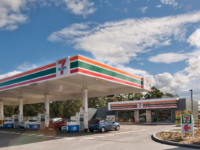The Choice Hotels Asia-Pac business reported its biggest month for direct online bookings and corporate sale in March 2023.
The record month topped off the first quarter’s booming bookings for the hotel chain.
Q1 Asia-Pac bookings though ChoiceHotels.com and the Choice Hotels App rose 43 percent compared to the same period last year.
Australian figures for revenue per available room (RevPAR) in the first quarter were 37 per cent higher than the corresponding three months in 2022. Average daily rates (ADR) rose 16 per cent on last year’s rates.
In the New Zealand market Q1 RevPAR lifted 71 per cent on the same period last year, with ADRs for the quarter rising 9 per cent.
Growth is across revenue and hotel footprint
In addition to the strong bookings, the hotel group’s expansion continued with three hotel signings. There are 174 hotels in the pipeline.
In May 2023 Choice Hotels appointed Trent Conroy to develop and drive high-value deals and strategic partnerships for the multi-brand business.
Choice Hotels Asia-Pac is a fully-owned subsidiary of Choice Hotels International. It includes the Ascend Hotel Collection, Clarion, Quality, Comfort and Econo Lodge brands.
Loyalty helps deliver Choice Hotels record month
Choice Hotels Asia-Pac CEO Trent Fraser said the Q1 results are encouraging.
“The domestic market is hot right now, with consumers continuing to splash out on travel, despite the cost-of-living challenges,” he said.
Fraser highlighted the role of the loyalty program in driving revenue growth.
“We’ve been focusing on building and developing the Choice Privileges loyalty program, and this has continued to pay off in Q1, with a 33 percent increase in loyalty revenue into our hotels. These engaged guests stay more often, stay longer, and spend more on food and beverage than the average consumer.”
The loyalty program has 57 million members worldwide, with 540,000 of those in the Asia-Pacific region.












